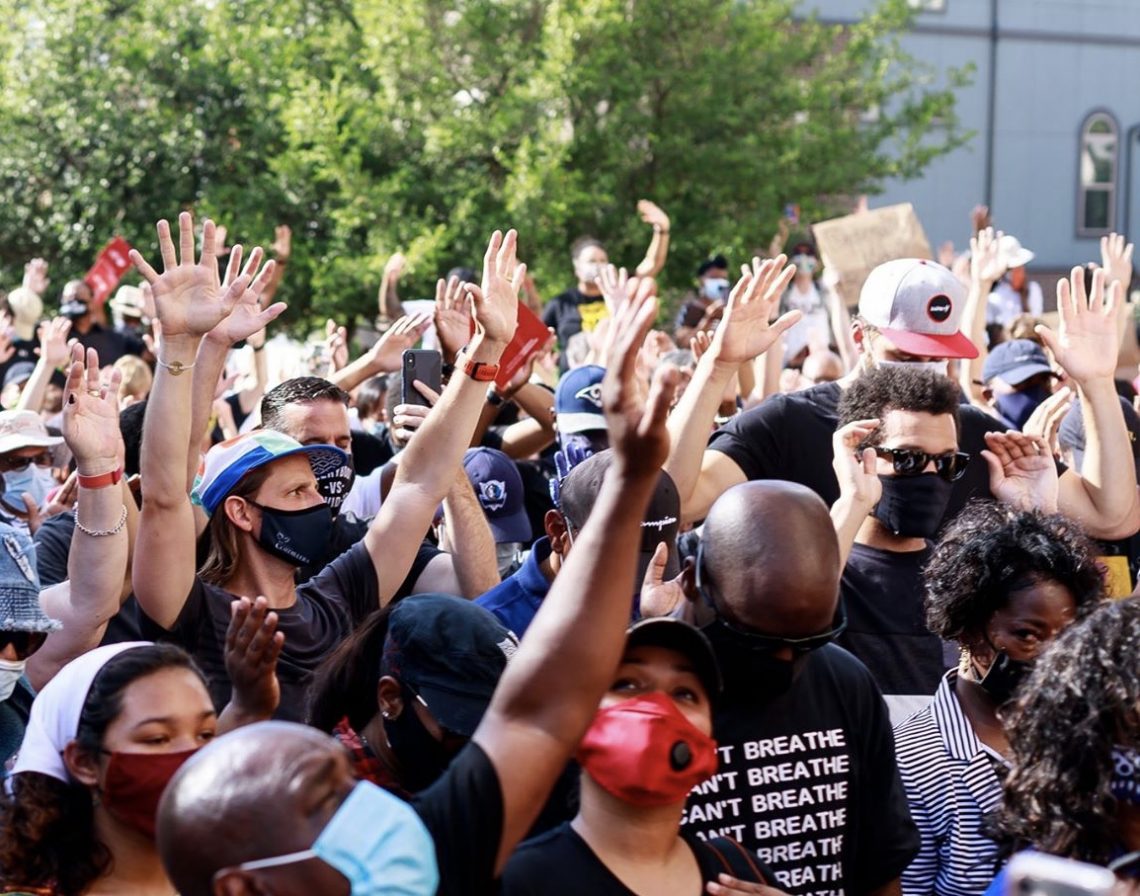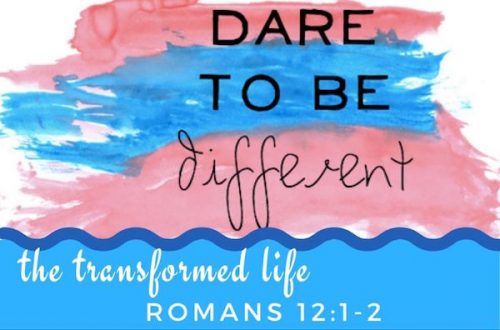
Racism: Where Do Whites Go from Here? – Part 2
Two weeks ago, I introduced a two-part series titled Racism: Where Do Whites Go from Here? I began by recommending humility and self-education. And I’m going to assume we’ve done some homework, so I can skip establishing that there is even a problem and go straight to what we can do in response to the overwhelming evidence. Here are some additional suggestions:
1. Become more respectful conversation partners. After my husband and I adopted a daughter, we appreciated those who stopped referring to her as our “adopted daughter” and instead called her our “daughter.” As pro-lifers, we appreciate it when people refer to us as “pro-life” instead of “anti-choice”—because it’s hard to have a conversation when we can’t even settle on a shared vocabulary that feels respectful. It’s the same with the topic of racism. And since many of us are relative newcomers to the deeper conversation here, we need to avoid demanding that others conform to the vocabulary with which we feel comfortable. Instead, we need to seek first to understand. Here are some words I constantly hear white evangelicals misunderstanding in this conversation—which leaves us offended rather than engaged:
White privilege. Jimmy Kimmel, in a non-comedy monologue, said, “White privilege doesn’t mean your life hasn’t been hard. It just means the color of your skin isn’t one of the things that makes it harder.” White privilege does not mean: Living a charmed life or failing to work hard or being unaffected by poverty. Additionally, it does not mean “living a life of financial privilege in which everything is handed to us.” The word “privilege” in the context of conversations about race in North America, Australia, South Africa and other majority-white places means “dominant culture.” Now, add any other modifier to the word “privilege,” and we get way less touchy. Class privilege means I have clean drinking water running from multiple faucets in my home. Religious privilege means in the US, most of the nation takes Christmas as a holiday, whereas in Israel, they take Rosh Hashana, and in Jordan they take Islamic New Year’s Day, Muharram. The dominant culture sets the holidays. In the same way we add “white” as a modifier to “privilege” in conversations about dominant culture. Whites are the dominant racial group in the USA, so we benefit from that dominance by virtue of having more representation.
Whiteness. Whiteness refers to “having an orientation to white as the dominant culture.” Whiteness is not synonymous with “being a white person.” Rather, the term labels the centering of the world in white skin and culture. Examples? We don’t label as “white church hymnals” those that leave out Negro Spirituals; we simply call them “hymnals,” and anything else gets a modifier: “Black-church hymnals” include Negro Spirituals. That’s making white the standard…. If we go to a toy store and find only white-skinned dolls, we are seeing evidence of whiteness—a toy aisle having an orientation to white as the dominant culture. When we go to a pharmacy aisle, we see the “hair care” aisle (for white people) and “ethnic hair care” (for non-whites)—as if white is not an ethnicity. Another example of “whiteness” is labeling as “church history” a version of Christendom’s story that assumes all Christians came out of Europe. Every person mentioned in the New Testament had a Black or Brown body, and we can’t even tell the history of thinking on the Trinity without including Church Fathers from North Africa such as Origen, Athanasius, and Augustine of Hippo.
Racial reconciliation. We need to know that not everybody loves the phrase “racial reconciliation.” And why would people not love that? Isn’t reconciliation wonderful? Absolutely. But the phrase “racial reconciliation” suggests that two parties now at enmity with each other were once—at some point in the past—united. It’s true that humans were once at peace with God, before the Fall in the Garden, which wrecked everything. That’s why we need to be reconciled to God through Christ. But when it comes to racial relations in the USA, when have the two been united, really? The fact that they haven’t is why some prefer the language of “conciliation,” which means coming together for the first time. I’m not saying we can’t use the phrase “racial reconciliation.” Lots of people of different ethnicities use it. I’m just providing an FYI. If you use it and see someone wince, that’s probably why.
Color blind. If we tell people we don’t see race and are thus “color blind,” intending to make a statement against racism, we miss the mark. Years ago, an African-American seminary professor heard me say I was trying to be color-blind, and he lovingly pulled me aside. “God made the color,” he said. “So, we want you to see it. Even to love and celebrate it.” He went on to explain that we might not want the law to see the color of someone’s skin or gender or social class if doing so changes how judges dispense justice. But we definitely need to see and love what God made good. We will spend eternity with our distinctions of tribe and nation, and all of us with our beautiful diversity will praise the one with the brown body who gave his life as a ransom for us all (Rev. 7:9).
Black lives matter. To say that “Black lives matter” is not to say Black lives matter more than everybody else or Blacks are superior. Rather, it means they matter too. In the past I have carried a placard at a pro-life rally proclaiming that unborn babies matter. Imagine if my friends corrected me with “all lives matter.” Of course all lives matter. That is exactly why I advocate for the unborn—because they matter too, even though some in our society deny them their right to live. We don’t have to agree with everything the organization “Black Lives Matter” says to agree that the saying is true. One of the ways we wear down those trying to make the world a better place is by picking apart the words, the bent knees, the organizations behind, the ways people try to tell us we are tolerating injustice as a way of staying on the sidelines. If we want the right to critique a movement and its underlying philosophies or lack thereof, to analyze its semantics, and/or to assess whether the movement is wrongly influenced by Critical Race Theory or Liberation Theology (etc., etc., etc.), we need to do so as we are going, and not as an excuse to stay on the sidelines. Determine not to let such analysis become an excuse to do nothing beyond talking about a real problem.
2. Consider where our money and support go. Support financially those working to make course corrections—organizations like the Equal Justice Initiative, founded by the same Christian believer who wrote Just Mercy (which is a great book to read/film to watch). In my own city, I like Mercy Street Dallas. Do some research, and find a favorite—and support their work. Another way to give is by supporting minority-owned businesses in your area. Google is your friend here. Still another is to look at the organizations you support with taxes and contributions such as your city, your school, your church, and civic organizations. My own city is 38.9 percent Latinx, 31.5 percent White Alone, and 24.7 percent Black or African American. Yet our city council is 100 percent white. What is my city missing by its lack of representation? What can I do about that? How can I lobby for change? What about you and your city? Your school board? Your church? Organizations you support and/or boards on which you serve?
3. Share our platforms with persons of color. If you’re a blogger, invite a guest columnist to fill your spot—and don’t limit their topic to racism. If you’re a teacher, invite a guest lecturer. If you’re a speaker, share your podium or Zoom feed or lectern. If asked to serve on an all-white panel, offer to give up your spot so a person of color can add a broader range of perspectives. If you’re a podcaster, look at your guests list.
4. Think twice about calling the police. If you have Black neighbors whose music disturbs you or who make noise in the apartment above you, go first to them and ask them directly to stop (see Matthew 18). In 2018, police answered white callers’ complaints about Blacks committing such offenses as…Operating a lemonade store; Golfing too slowly; Waiting for a friend at Starbucks; Barbecuing at a park; Working out at a gym; Campaigning door to door; Moving into an apartment; Mowing the wrong lawn; Shopping for prom clothes; Napping in a university common room; Asking for directions; Not waving while leaving an Airbnb; Redeeming a coupon; Selling bottled water on a sidewalk; Eating lunch on a college campus; Riding in a car with a white grandmother; Babysitting two white children; Working as a home inspector ; Working as a firefighter; Helping a homeless man; Delivering newspapers ; Swimming in a pool; Shopping while pregnant ; Driving with leaves on a car and Trying to cash a paycheck; taking a phone call in a hotel lobby.
5. Vote. Local elections may be even more important than the general US election. It takes work to educate ourselves about local elections. But look at how COVID-19 has required good local leadership when Vancouver, Washington has very different needs in response to the virus than, say, New York City or Houston.
6. Visit. Even though travel is currently limited due to COVID-19, we can still plan ahead… to visit places like The National Museum of African American History and Culture in Washington DC. Pay special attention to how the Word of God and Gospel Music have sustained our brothers and sisters in Christ through deep injustices. Of all the Smithsonians, this one provides the most overt treatment of Christianity. Also, go to Georgia and check out the National Center for Civil and Human Rights in Atlanta as well as the Rev. Dr. Martin Luther King National Historical Park Visitor’s Center.
7. Teach (y)our children well. Whether the kids are yours or others’, lead by example. Whom do you invite to share meals? Whose houses do you frequent? What books do you read to your littles? If they’re older, listen with them to I have a Dream, Letter from a Birmingham Jail, and I’ve been to the Mountaintop by Rev. Dr. Martin Luther King Jr.. Often we get (rightly) accused of picking and choosing what we will cite from Dr. King’s legacy. So, take the time to really hear him out. Explore together The 1619 Project about the legacy of slavery in America. Tell your own race story. When did you first become aware of the color of your skin? What messages did you hear growing up? How did they affect you? What does God’s Word say about favoritism and prejudice?
Feel like this is a lot? Of course it is. We didn’t get here overnight, and we won’t get it done by next Friday. It will take a lifetime. We are in a spiritual battle, and all of this is part of what is required by the Lord who calls us to “do justice” (Micah 6:8). And it is also part of a debt of love we owe to our brothers and sisters who have loved Jesus and his Bride enough to watch, pray, seek, ask, suffer, persevere, and wait centuries for us to come around. May He reward them and grant us all the strength to run the race with endurance. But beyond them, we owe it to our fellow humans. The goal is not only to weed out the scourge of racism. It is to embrace and celebrate and appreciate and marvel at the beautiful differences made by God.
Also…five years ago on this site, I wrote about seven baby steps my white brothers and sisters can take to fight racism.



